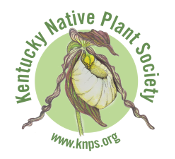By Judith Gallova
Native plants are great for the environment because they’re not only lower-maintenance, but they also provide shelter and food to local animals and insects. But unfortunately, not all insects are beneficial. That’s why gardeners need to learn to manage insect pests effectively.
Nevertheless, don’t rush to the nearest store to buy a pesticide. Pesticides are strong chemicals that only deal with the problem short term. They’re expensive, and what’s more, may harm people, animals, and the environment.
Instead, consider integrated pest management; a broad-based, eco-friendly approach for controlling pests long-term. Here are integrated strategies for protecting your native plants from unwanted intruders.
How Integrated Pest Management Works
Integrated pest management will be unique to each garden, but certain general principles can be applied to all landscapes. Here are the steps to implement integrated pest management strategies:
- Assess the problem: Which insects are a threat to your plants and which ones are beneficial? How much damage can the harmful insects do to your garden and do you need to protect your plants from them?
- Monitor for and identify pests: Monitor your plants for insect pests, and identify them correctly.
- Determine action thresholds: Decide how much pest activity is enough that it warrants action.
- Explore treatments: Take a look at some of the pest management strategies below and use the ones that work for you.
- Evaluate results: Go back to the beginning and asses if the situation has improved. If not, reassess and try, try again.
Physical Ways to Get Rid of Plant Pests
These are a few physical methods you can use to prevent insect pests from getting where they want to go.
- Dispose of heavily infested plants.
- Prune plants where they’ve been attacked by bugs.
- Use strong sprays of water to remove bugs from plants.
- Use lateral barriers, like exclusion nets, to help prevent insect pests from getting to your plants.
Cultural Ways to Get Rid of Plant Pests
Cultural ways to eliminate plant pests involve things like good gardening practices and smart ways to store food, compost, and garbage.
- Plant insect pest-resistant species, for example, swamp milkweed.
- Consider using resistant rootstocks.
- Don’t use nitrogen in excess.
- Manage weeds effectively.
- Water your plants adequately, especially during periods of drought.
- Pick up fallen fruit from the ground.
- Don’t leave plant debris out in the open.
- Cover your garbage cans.
- Seal compost bins.
- Don’t store pet food near your plants, or put it in airtight containers.
Biological Ways to Get Rid of Plant Pests
Use natural insect pest predators, also called natural enemies. For example, you can use ladybugs or managing ants to help control aphids. Or, use beneficial mites to help wipe out spider mites.
Chemical Ways to Get Rid of Plant Pests
If your infestation is too problematic that the natural options aren’t effective, you may have to resort to pesticides. Chemicals can effectively remove insect pests, but they may also pose a risk to people, animals, and the environment. Before you take action with pesticides, ensure that you’ve taken all the other possible steps. Once you use chemicals to eradicate the problem, return to non-chemical options to maintain and keep insect pests from coming back.
If you’ve decided to apply chemical treatments:
- Consider insecticidal soaps, plant-derived oils, and horticultural oils. They can help to get rid of insect pests without posing as much harm as pesticides.
- If you do apply pesticides, avoid using the same one repeatedly, or the insect pests may build resistance to it.
- Avoid using broad-spectrum pesticides so you don’t kill beneficial bugs who prey on insect pests.
- Always read and follow the instructions printed on the pesticide label.
FAQ
- Which insect pests commonly attack plants in Kentucky?
- Kentucky plants deal with a variety of insect pests. Common ones include aphids and spider mites.
- Which plants are native to Kentucky?
- Kentucky has a number of native plants you can buy at local plant suppliers. For example, the purple coneflower, wild bergamot, and swamp milkweed.
- Which plant is resistant to insect pests?
- Swamp milkweed is a Kentucky native that is insect pest-resistant. It thrives in local swamps and wetlands.
- Where can I learn more about IPM?
- Contact your county extension agent for more information about IPM. You can send pictures of the pest and the damage. You might be asked to bring in a specimen to send to UK.
Final Thoughts
Incorporating long-term, chemical-free strategies into your garden is the best way to protect your plants from insect pests long-term. There are more solutions than you may initially realize, so if you can avoid using chemicals as much as possible, you’ll be doing the best thing for the environment.
Judith is a freelance home and yard improvement writer. Using her skills and research, she explores the essentials of plant care, helping you maintain a beautiful garden. In her free time, Judith likes to spend time with loved ones, stroll through nature, and study the Bible.
